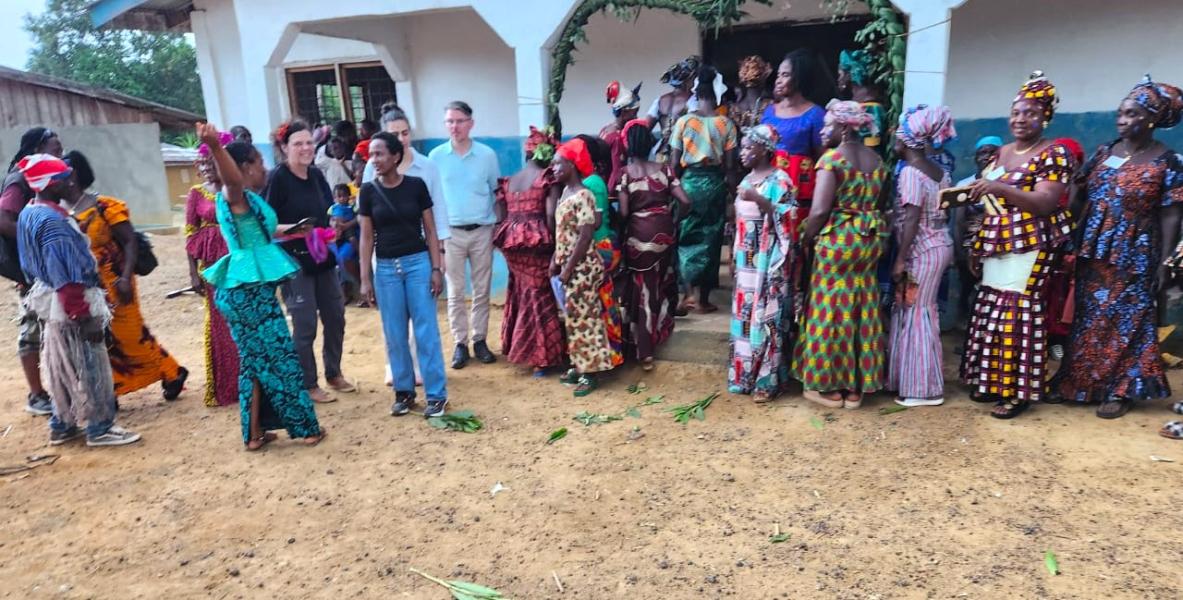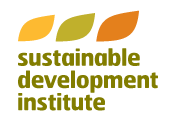
Women in Dowein Clan, RiverCess County continue to break barriers as they lead on customary land governance in their communities. This progress is a result of the intensive and consistent training on Community Self-Identification (CSI), Women's land Rights, Community Land Development & Management Committees (CLDMCs), among others provided by the Sustainable Development Institute (SDI) through its Community Land Protection Program (CLPP).
Before the landmark 2018 Liberia Land Rights Act (LRA), land governance in Liberia was predominantly male-dominated, with women’s voices and perspective often sidelined. However, intensive and consistent awareness by the SDI using the 2018 LRA has empowered women to assert their rights and participate in decision-making processes regarding land use and management.

According to the enthusiastic women of Dowein, one key factor in this has been community awareness activities led by SDI. These activities educate both men and women about the importance of gender equality in land governance. These activities, they said, highlight the historical contributions of women in agriculture and land management, underscoring their critical role in food security and economic stability.
Thanks to SDI’s education efforts, women have gained representation in decision-making bodies like the Community Land Development and Management Committees (CLDMCs), Community Forest Management Bodies (CFMBs), and Community Assembly (CA) challenging traditional norms that previously limited their participation. Furthermore, these women's involvement in land governance is beginning to influence decisions that aim to protect women's land rights. As a result, communities are starting to recognizing the value of inclusive decision-making that includes various views, which leads to more sustainable and equitable land management practices.
As they continue to advocate for their rights and solidify their presence in leadership roles, these women are paving the way for future generations to take the lead in customary land governance, contributing to progress toward gender equality and sustainable development.
During a field assessment visit from Tenure Facility (TF), Madam Cecelia Wahyon, Treasurer of Neezuin CLDMC, shared how SDI has empowered them through education on their land rights.
Madam Wahyon said “We are happy for SDI because it has really helped us. Before men didn’t allow women to attend meetings about land business. But when SDI came, women were fully involved in discussions and decisions about land.”
She continued “Through SDI, we now know so many things about customary land and our boundary points with neighboring clans, thank you to SDI and her donor partners. We now know about our land and our sufferings have ended as women.”
Madam Oldma Swee, Spokeswoman for the women of Dowein clan expressed her gratitude to SDI and Tenure Facility reflecting on the transformative impact of the 2018 Land Rights Act. “We want to be thankful to SDI and TF. Before the Land Rights Act was passed in 2018, women never had land rights. Women never had the right to land or discuss it at all. With the support from TF through SDI, and the education provided, things have improved. Women now have rights over land and are now making decisions.”
Madam Swee added “SDI educated us and we now know our rights through support from TF, our neighboring clans now have their deeds. With the presence of TF, we are assured of getting our deed. SDI is giving us knowledge about land because only males were prioritized.”
Madam Oretha Wahyon of the Community Assembly (CA) of Kpa Town also shared her thoughts: “We the women and men are equal. Women now have rights to our land even when the man dies the land belongs to us. We have 50-50 equal rights now. During those days’ women never had land rights and once our husbands died, we were immediately taken from the land. SDI educated us that the properties belong to men and women now. These things are not happening again because of the education provided by SDI.”
Dr. Margaret Rugadya, TF Regional Coordinator for Africa expressed her appreciation “I want to thank the community for welcoming us. We are very happy that you are in charge of your community process. We are only here as friends to support you. The land and forest are good. If you want us to support you, tell SDI, Parley and they will tell us. We are united by land for communities.”
Gregory Kitt, Executive Director of Parley Liberia emphasized the importance of unity for women moving forward “Women need to remain united for the weeks and months ahead as you go through efforts to map your boundaries and get your deeds done. Speak with SDI about your ideas on what needs to be done next because we are planning now on what we will do this year, and next year in the Dowein clan. Women who are under the land communities have to consult their sisters in the communities if they have an idea about what should be done in the Dowein clan. Gather such information and bring it to SDI.”
For her part, the Lead Facilitator of the Community Land Protection Program (CLPP)) at the Sustainable Development Institute (SDI) who directly works with these women said the rise of women in the Dowein-Neezuin community over the formalization of their customary land rights has been one of the most inspiring transformations she has witnessed.
Madam Wlayor S. C. Tipayson said “Traditionally, land governance and decision-making structures have been male-dominated, but the passage of the 2018 Land Rights Act (LRA) and persistent community engagements have paved the way for change. Today, women are stepping into leadership roles with confidence and purpose, actively participating in land formalization discussions to ensure their voices and interests, long sidelined, are finally recognized and prioritized.”
Madam Tipayson further said the growing representation of women in decision-making bodies like the Animators, Interim Coordination Committee (ICC), and the Community Land Development Management Committee (CLDMC) reflects a fundamental shift toward inclusivity and equity. She said, “Once considered unattainable, these leadership roles are now within reach, proving that when women lead, entire communities benefit.”
